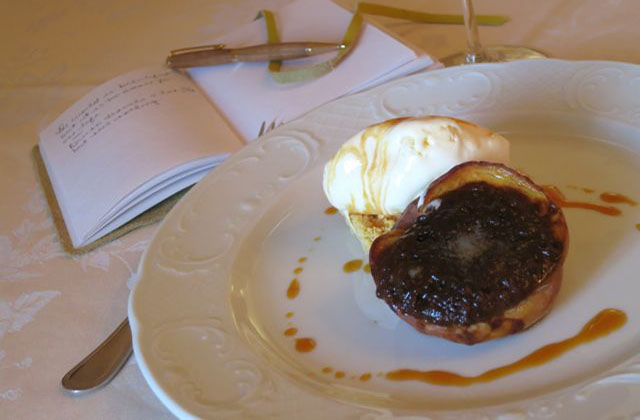What happened? I started food writing 20 years ago and it seems to me that with the internet, we have less information today than ever before – less reliable information for sure.
 So I’m working on a food story and thought I’d look for restaurant reviews. So the first one I googled was Zagat. So far so good, reviews are written by industry professionals of one sort or another. I look up the Toronto section and discover the writer is someone I know; Suresh Doss. Now, I like Suresh, I respect his work, we have similar thoughts on food and wine and trust his opinions so I’m feeling pretty good that I’m getting some real information. I’m actually kind of excited and somehow feel the pages are full of “inside information” just for me. The reviews somehow seem closer to me than just words on a page and I’m inspired to follow his advice. Wow, this is really good.
So I’m working on a food story and thought I’d look for restaurant reviews. So the first one I googled was Zagat. So far so good, reviews are written by industry professionals of one sort or another. I look up the Toronto section and discover the writer is someone I know; Suresh Doss. Now, I like Suresh, I respect his work, we have similar thoughts on food and wine and trust his opinions so I’m feeling pretty good that I’m getting some real information. I’m actually kind of excited and somehow feel the pages are full of “inside information” just for me. The reviews somehow seem closer to me than just words on a page and I’m inspired to follow his advice. Wow, this is really good.
Ok, done my research on that page, I now go to Yelp. What the heck is this? It’s nothing more than a listing of restaurants and cheesy advertising totally mashed together like lumpy potatoes and there are no reviews, only diners sharing their comments. My initial thoughts are “who cares?”
 Lots of people eat out at restaurants every day and every person has a different experience and opinion. So what does it really say about a restaurant when these people share their comments publically? I don’t know the answer to that question, I really am looking for an answer.
Lots of people eat out at restaurants every day and every person has a different experience and opinion. So what does it really say about a restaurant when these people share their comments publically? I don’t know the answer to that question, I really am looking for an answer.
There is no voice of authority to give me the “inside” scoop, no way of judging the credibility of any of the reviews and no way to know who the is writer. It’s important to know who the writer is. What if someone loves fast food and was judging an Italian restaurant based on a fast-food benchmark? When they criticize the service or food, how would you know if it’s being judged based on your culinary values? I guess you don’t. So my question is, what value are these kinds of sites? Again, I’m asking, looking for answers.
Next I googled Urbanspoon and found it not much better, but they do seem to be a bit more serious about restaurant reviews because they label each review by either Critic, Blogger and Diner so you know – that’s good.
 Personally speaking I don’t know the difference between a blogger or diner. When it comes to credibility, bloggers are self-proclaimed opinion sharrers and so are diners. So I started to take a look at the professional reviewers and found some great information, albeit, I did have to dig for it. Professional reviews seem to know what information is important and at the end of their review, a more complete picture is painted so you’re left with a better impression. It equals good information.
Personally speaking I don’t know the difference between a blogger or diner. When it comes to credibility, bloggers are self-proclaimed opinion sharrers and so are diners. So I started to take a look at the professional reviewers and found some great information, albeit, I did have to dig for it. Professional reviews seem to know what information is important and at the end of their review, a more complete picture is painted so you’re left with a better impression. It equals good information.
Next was Gayot. On this site, they want you to fill out a form to find a restaurant. You have to pick out a restaurant by your preferred criteria. At this point I’m too frustrated to figure out what I want – hey, isn’t that why I’m on the website for them to recommend to me? Again, just asking. Or you can go to their Top 10 in any city – good stuff, or sign up for a restaurant newsletter, not good. I did find restaurant descriptions buried under a few layers of instructions, advertising and categories. No reviewer names though. I guess they want you to follow them and not a person. Somehow I am inclined to follow a person before any website. Not quite the authorative review I was looking for but much better than a never-ending list of meaningless public opinions.
What’s the saying? Oh yea, “There are too many people with opinions and not enough with facts”. Wish it were me who uttered those words of wisdom because they seem to fit so brilliantly when it comes to restaurant review sites on the internet.
 I did persevere and googled Menuism.com – bad; Dine.to, it’s more of an advertisement for the restaurant than anything else; restaurantrow.com, the site didn’t work; menupages.com, too much text, too many choices, clicked away for fear of being overwhelmed; restaurants.ca, nothing more than a parked-page; eater.com, pretty good, filled with reviewers names and restaurants and they take an authoritive lead here. Ok, this one gets my vote.
I did persevere and googled Menuism.com – bad; Dine.to, it’s more of an advertisement for the restaurant than anything else; restaurantrow.com, the site didn’t work; menupages.com, too much text, too many choices, clicked away for fear of being overwhelmed; restaurants.ca, nothing more than a parked-page; eater.com, pretty good, filled with reviewers names and restaurants and they take an authoritive lead here. Ok, this one gets my vote.
So that was the extent of my search. Not complete I know, but these were my top search engine picks and I’m disillusioned enough to post this blog.
Another pet peeve with consumer opinion sites are the really, really bad food photos, Some sites (and I won’t mention which ones) don’t seem to have any lowest baseline criteria when it comes to food photography. Many of them look like the dog’s breakfast eaten twice and it makes me want to stay as far away from the restaurant as possible. How good for business can this be? Again, I’m just asking.
 So how is this all helping? Again my questions need answers. My opinion is that, like many other websites, it’s all a game of consumer engagement. The theory I’ve heard bandied about at social media seminars is to engage the consumer. If you engage the consumer you’ll end up with some kind of return on investment. If this is even close to being true, the process of engagement seems to have fallen to last priority or at least when some of these websites were launched, the discussion of outcomes was somehow forgotten. Either way, many of these sites have to be bad for business.
So how is this all helping? Again my questions need answers. My opinion is that, like many other websites, it’s all a game of consumer engagement. The theory I’ve heard bandied about at social media seminars is to engage the consumer. If you engage the consumer you’ll end up with some kind of return on investment. If this is even close to being true, the process of engagement seems to have fallen to last priority or at least when some of these websites were launched, the discussion of outcomes was somehow forgotten. Either way, many of these sites have to be bad for business.
Before I sign off, I want to make myself very clear on what happens next. If anyone has any answers to my questions or opinions on anything I’ve written here, I need you to be very clear on where your comments fall; fact or opinion. Now come at me!
